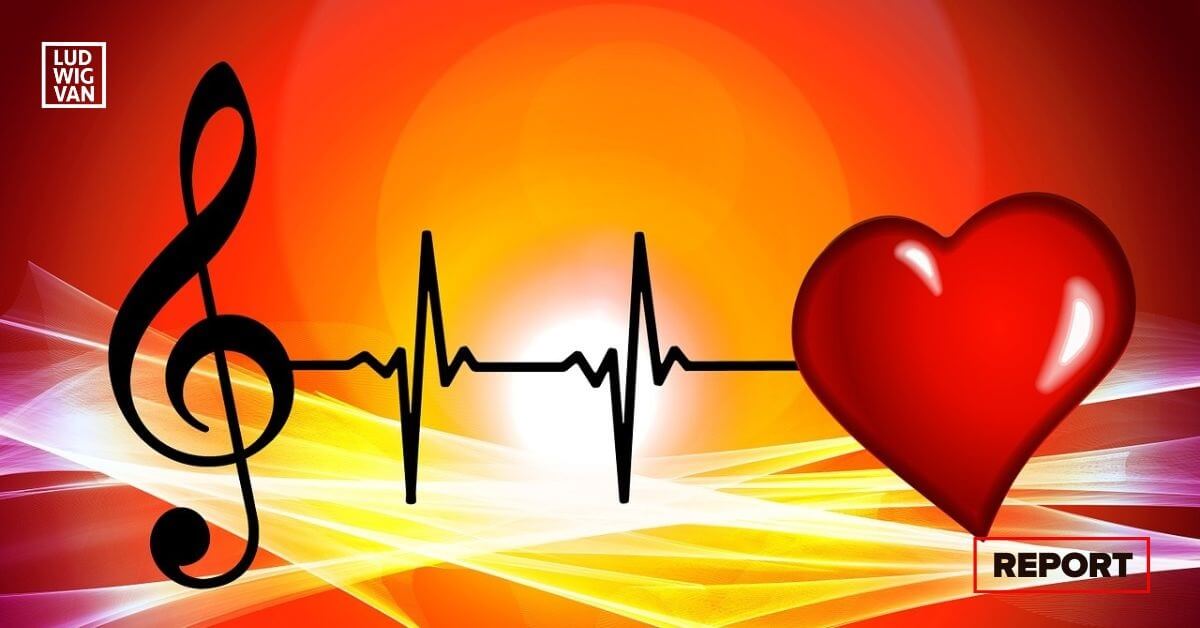
It’s often said that classical music is relaxing, with an implication of the slower pace of times gone by. But, the realm of classical music itself can’t be said to be entirely relaxing at all times, and it turns out our emotional — and physical — responses to it are more complicated than the usual assumption.
Researchers from an Illinois private school, along with a rheumatologist, and lead researcher Amir Darki, Associate Professor of Cardiology at the Loyola University Medical Center, looked into those assumed connections between listening to classical music, blood pressure, and mood. The paper is titled Darki C, Riley J, Dadabhoy D P, et al. (July 27, 2022) The Effect of Classical Music on Heart Rate, Blood Pressure, and Mood. Cureus 14(7).
The Emotional-Physical Link
The researchers noted that depression and anxiety have negative effects on physical health as well as mental health. There are many studies that back up the links between increased levels of stress and anxiety, and elevated heart rate and blood pressure, leading to heart disease.
- The nervous system links to the cardiovascular system — that’s how the effects are created;
- Along with heart disease, stress and anxiety have been linked to diabetes, strokes, respiratory
problems, and drug abuse.
In short, listening to classical music can help.
The Study
Previous studies have documented the psychological effects of listening to music, particularly when it comes to managing conditions such as chronic anxiety and depression. However, the paper notes that many of the older studies used small sample sizes, where the participants were very similar.
- 100 participants were enrolled, including 53 males and 47 females with a mean age of 39.8 years old +/- 17.8;
- 40% were musicians; 35% were on medication; 62% said they enjoyed classical music;
- They used two pieces, both by Beethoven: Symphony of Fate or his Fifth Symphony, and the Moonlight Sonata;
- The two pieces were chosen to present contrasting tempos — one slower, one faster;
- Resting heart rate and blood pressure were taken before;
- BP was measured 40 seconds into listening to No. 5, then after the end;
- After a minute of rest, the exercise was repeated with Moonlight Sonata after 90 seconds, and at the end of the performance.
The Results
As expected, listening to classical music has positive physical and emotional effects.
Physically:
- Listening to fast music increased heart rate, systolic, and diastolic blood pressure;
- Listening to slow music decreased heart rate, systolic, and diastolic blood pressure.
Emotionally:
- 83% said fast music created positive emotions;
- 56% said slow music created positive emotions;
- 98% said that fast music helps manage stress;
- 99% said that slow music helps manage stress;
- Only 3% said that fast music created negative feelings, and 9% of subjects said the same about slow music.
The results were analyzed by age group, gender, and by whether the listeners were themselves musicians.
- The physical and emotional effects were similar across the board;
- The only exception were musicians, whose systolic blood pressure after listening was lower than the others by a statistically significant measure.
The researchers discuss the concept that the body responds rhythmically to the music you are listening to, speeding up when the tempo is faster, and slowing down when it’s slower. They found that the level of arousal was proportional to the actual speed, i.e. the effect is greater the faster/slower the music.
They also note that the vagus nerve, which controls the heart rate as part of the body’s autonomic system, is located near the eardrum, and it may respond directly to musical vibrations. Listening to music can also help the body to produce dopamine, the feel-good hormone.
The study adds interesting results to the growing body of research into music and its influence on our lives.
#LUDWIGVAN
Get the daily arts news straight to your inbox.